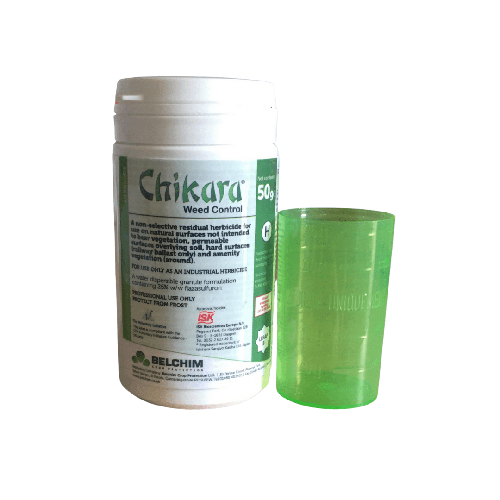1 Product
Fast Delivery
Same Day Dispatch Available On Orders Placed Before 12pm
Expert Advice
Best Advice Guarantee, We Have Qualified Experts
Trade Accounts
Trade Accounts Available. Trade Discounts, Exclusive Offers
5 Star Reviews
Excellent Service, Fast Delivery - Our Customers Love Us!
Collection: Pre-Emergent Weed Killers
Pre-emergent weed killers are herbicides designed to prevent the germination of weed seeds before they have a chance to grow. They are typically applied to the soil before the weeds begin to emerge, and are most effective when used in combination with other weed control methods.
Pre-emergent weed killers work... Read More
Pre-emergent weed killers are herbicides designed to prevent the germination of weed seeds before they have a chance to grow. They are typically applied to the soil before the weeds begin to emerge, and are most effective when used in combination with other weed control methods.
Pre-emergent weed killers work by creating a barrier in the soil that prevents the growth of weed seeds. When applied correctly, they can significantly reduce the number of weeds that appear in a given area.
Common active ingredients in pre-emergent weed killers include pendimethalin, dithiopyr, prodiamine, and isoxaben. These herbicides are often combined with other ingredients to enhance their effectiveness and reduce the risk of resistance.
Pre-emergent weed killers are typically applied in the spring or fall, depending on the type of weed being targeted. They can be applied using various methods, including spray, granular, and liquid applications.
It is important to follow the manufacturer's instructions carefully when using pre-emergent weed killers, as these products can be harmful to desirable plants if not used correctly. Additionally, pre-emergent herbicides can remain active in the soil for several months, so it is important to avoid applying them in areas where they may affect future plant growth.
While pre-emergent weed killers can be effective in preventing weed growth, they are not a complete solution for weed control. Other weed control methods, such as hand weeding, mulching, and mowing, may also be necessary to keep weeds under control.

